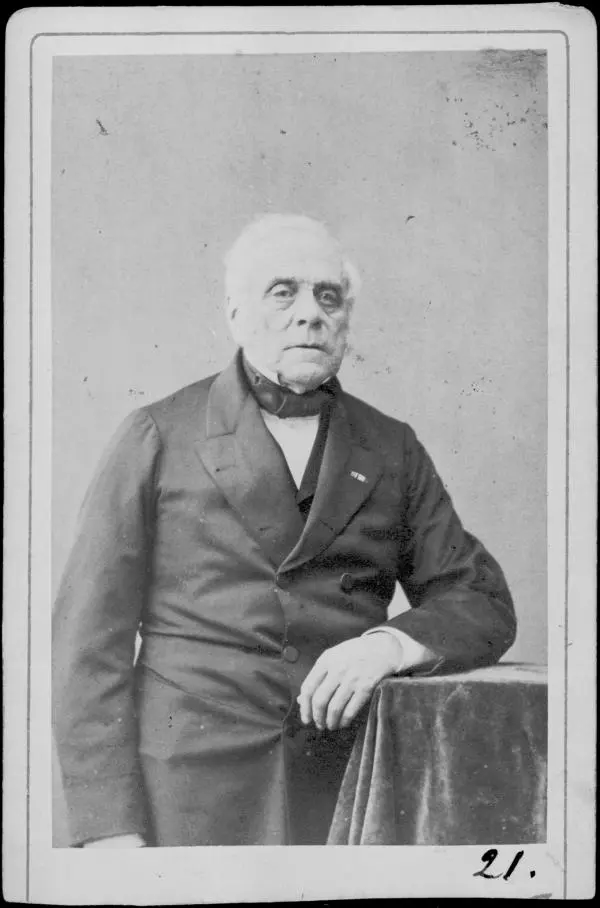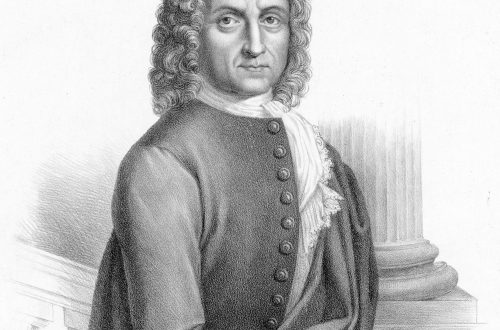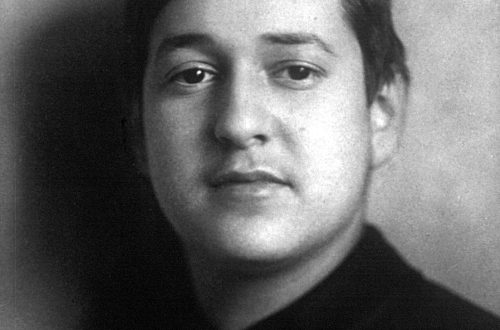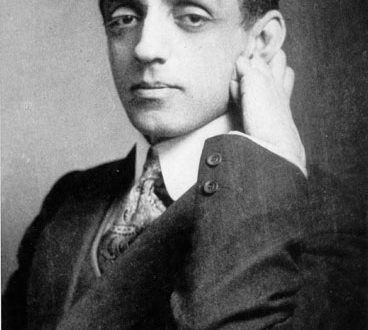
Daniel Francois Esprit Auber |
Contents
Daniel Auber
Ober. “Fra Diavolo”. Young Agnes (N. Figner)
Member of the Institute of France (1829). As a child, he played the violin, composed romances (they were published). Against the wishes of his parents, who prepared him for a commercial career, he devoted himself to music. His first, still amateurish, experience in theatrical music was the comic opera Iulia (1811), approved by L. Cherubini (under his direction, Aubert subsequently studied composition).
Aubert’s first staged comic operas, The Soldiers at Rest (1813) and Testament (1819), did not receive recognition. Fame brought him the comic opera The Shepherdess – the owner of the castle (1820). From the 20s. Aubert began a long-term fruitful collaboration with the playwright E. Scribe, the author of the libretto of most of his operas (the first of them were Leicester and Snow).
At the beginning of his career, Aubert was influenced by G. Rossini and A. Boildieu, but already the comic opera The Mason (1825) testifies to the creative independence and originality of the composer. In 1828, the opera The Mute from Portici (Fenella, lib. Scribe and J. Delavigne), which established his fame, was staged with triumphant success. In 1842-71 Aubert was the director of the Paris Conservatoire, from 1857 he was also a court composer.
Ober, along with J. Meyerbeer, is one of the creators of the grand opera genre. The opera The Mute from Portici belongs to this genre. Its plot – the uprising of Neapolitan fishermen in 1647 against the Spanish enslavers – corresponded to the public mood on the eve of the July Revolution of 1830 in France. With its orientation, the opera responded to the needs of an advanced audience, sometimes causing revolutionary performances (a patriotic manifestation at a performance in 1830 in Brussels served as the beginning of an uprising that led to the liberation of Belgium from Dutch rule). In Russia, the performance of the opera in Russian was allowed by the tsarist censorship only under the title The Palermo Bandits (1857).
This is the first major opera based on a real-historical plot, the characters of which are not ancient heroes, but ordinary people. Aubert interprets the heroic theme through the rhythmic intonations of folk songs, dances, as well as battle songs and marches of the Great French Revolution. The opera uses the techniques of contrasting dramaturgy, numerous choirs, mass genre and heroic scenes (on the market, uprising), melodramatic situations (the scene of madness). The role of the heroine was entrusted to a ballerina, which allowed the composer to saturate the score with figuratively expressive orchestral episodes that accompany Fenella’s stage play, and introduce elements of effective ballet into the opera. The opera The Mute from Portici had an impact on the further development of folk-heroic and romantic opera.
Aubert is the largest representative of the French comic opera. His opera Fra Diavolo (1830) marked a new stage in the history of this genre. Among the numerous comic operas stand out: “The Bronze Horse” (1835), “Black Domino” (1837), “Diamonds of the Crown” (1841). Aubert relied on the traditions of the masters of the French comic opera of the 18th century. (F. A. Philidor, P. A. Monsigny, A. E. M. Gretry), as well as his older contemporary Boildieu, learned a lot from the art of Rossini.
In collaboration with Scribe, Aubert created a new type of comic opera genre, which is characterized by adventurous and adventurous, sometimes fairy-tale plots, naturally and rapidly developing action, replete with spectacular, playful, sometimes grotesque situations.
Aubert’s music is witty, sensitively reflecting comedic turns of action, full of graceful lightness, grace, fun and brilliance. It embodies the intonations of French everyday music (song and dance). His scores are marked by melodic freshness and variety, sharp, piquant rhythms, and often subtle and vibrant orchestrations. Aubert used a variety of ariose and song forms, masterfully introduced ensembles and choirs, which he interpreted in a playful, effective way, creating lively, colorful genre scenes. Creative fertility was combined in Aubert with the gift of variety and novelty. A. N. Serov gave a high assessment, a vivid description to the composer. Aubert’s best operas have retained their popularity.
E. F. Bronfin
Compositions:
operas – Julia (Julie, 1811, a private theater in the castle of Chime), Jean de Couvain (Jean de Couvain, 1812, ibid.), The military at rest (Le séjour militaire, 1813, Feydeau Theater, Paris), Testament, or Love notes (Le testament ou Les billets doux, 1819, Opera Comic Theatre, Paris), Shepherdess – the owner of the castle (La bergère châtelaine, 1820, ibid.), Emma, or a careless promise (Emma ou La promesse imprudente, 1821, ibid. same), Leicester (1823, ibid.), Snow (La neige, 1823, ibid.), Vendôme in Spain (Vendôme en Espagne, together with P. Herold, 1823, King’s Academy of Music and Dance, Paris) , Court Concert (Le concert à la cour, ou La débutante, 1824, Opera Comic Theater, Paris), Leocadia (Léocadie, 1824, ibid.), Bricklayer (Le maçon, 1825, ibid.), Shy (Le timide , ou Le nouveau séducteur, 1825, ibid.), Fiorella (Fiorella, 1825, ibid.), Mute from Portici (La muette de Portici, 1828, King’s Academy of Music and Dance, Paris), Bride (La fiancée, 1829, Opéra Comique, Paris), Fra Diavolo (F ra Diavolo, ou L’hôtellerie de Terracine, 1830, ibid.), God and Bayadère (Le dieu et la bayadère, ou La courtisane amoureuse, 1830, King. Academy of Music and Dance, Paris; the role of the silent bayadère isp. ballerina M. Taglioni), Love potion (Le philtre, 1831, ibid.), Marquise de Brenvilliers (La marquise de Brinvilliers, together with 8 other composers, 1831, Opera Comic Theater, Paris), Oath (Le serment , ou Les faux-monnayeurs, 1832, King’s Academy of Music and Dance, Paris), Gustav III, or Masquerade Ball (Gustave III, ou Le bal masqué, 1833, ibid.), Lestocq, ou L’ intrigue et l’amour, 1834, Opera Comic, Paris), The Bronze Horse (Le cheval de bronze, 1835, ibid; in 1857 reworked into a grand opera), Acteon (Actéon, 1836, ibid), White Hoods (Les chaperons blancs, 1836, ibid.), Envoy (L’ambassadrice, 1836, ibid.), Black Domino (Le domino noir, 1837, ibid.), Fairy Lake (Le lac des fées, 1839, King’s Academy Music and Dance”, Paris), Zanetta (Zanetta, ou Jouer avec le feu, 1840, Opera Comic Theater, Paris), Crown Diamonds (Les diamants de la couronne, 1841, ibid.), Duke of Olonne (Le duc d ‘Olonne, 1842, ibid.), The Devil’s Share (La part du diable, 1843, ibid.) , Siren (La sirène, 1844, ibid.), Barcarolle, or Love and Music (La barcarolle ou L’amour et la musique, 1845, ibid.), Haydée (Haydée, ou Le secret, 1847, ibid.), Prodigal son (L’enfant prodigue, 1850, King. Academy of Music and Dance, Paris), Zerlina (Zerline ou La corbeille d’oranges, 1851, ibid), Marco Spada (Marco Spada, 1852, Opera Comic Theater, Paris; in 1857 revised into ballet), Jenny Bell (Jenny Bell, 1855, ibid.), Manon Lescaut (Manon Lescaut, 1856, ibid.), Circassian woman (La circassienne, 1861, ibid.), Bride of King de Garbe (La fiancée du roi de Garbe, 1864, ibid.) ), The First Day of Happiness (Le premier jour de bonheur, 1868, ibid.), Dream of Love (Rêve d’amour, 1869, ibid.); strings. quartets (unpublished), etc.





